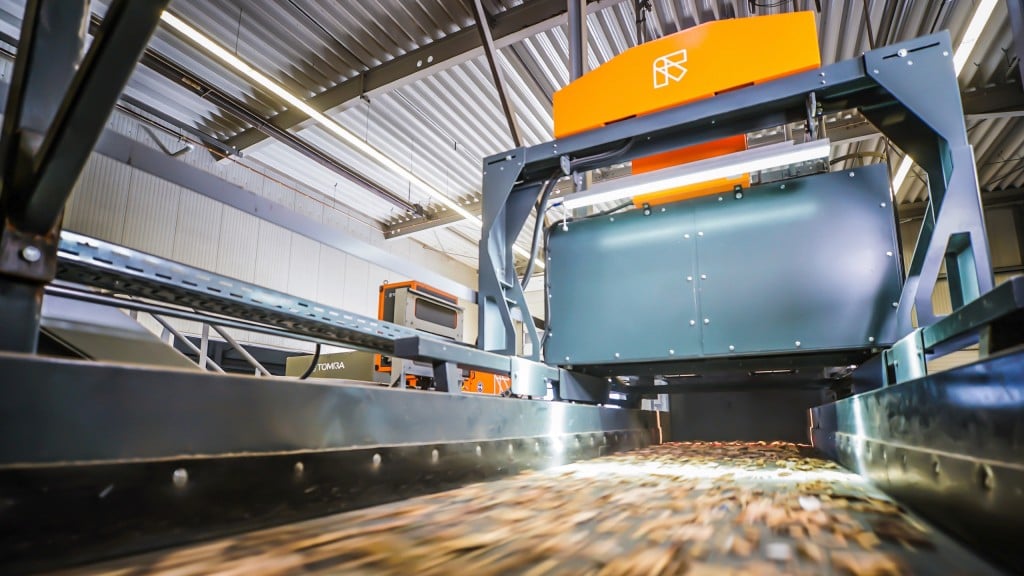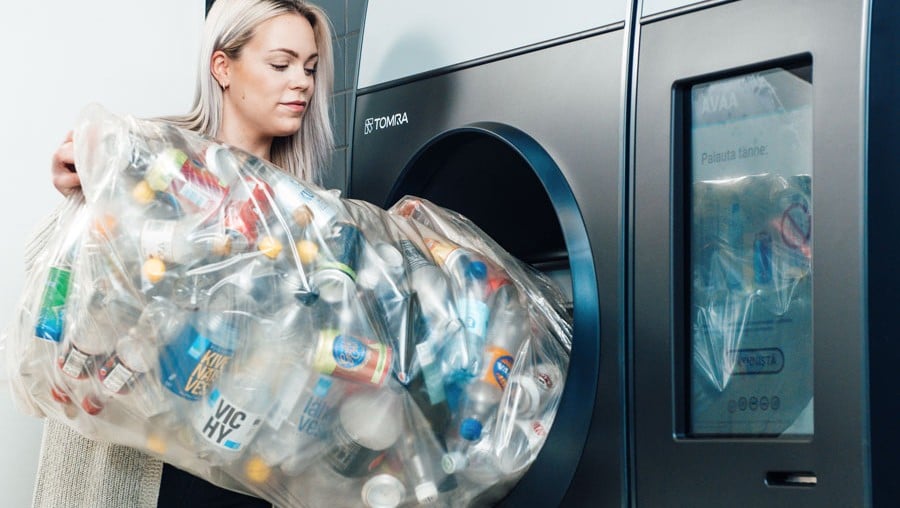
TOMRA has celebrated its 50th anniversary.
Each of TOMRA's four divisions – collection, food, recycling, and mining – marked the milestone by declaring a collective mission for the future to "transform how we all obtain, use and reuse the planet's resources to enable a world without waste."
"We live in a world that needs big transformation," said Tove Andersen, TOMRA's president and chief executive officer. "We urgently need to improve sustainability, develop the circular economy, and make more efficient use of resources – challenges which TOMRA's solutions can help address."
TOMRA was founded in Norway on April 1, 1972, by brothers Petter and Tore Planke. After seeing a local grocer struggle with the manual collection of empty bottles in their store, the brothers developed the first fully-automated reverse vending machine (RVM) in their family's garage. This concept is still used around the world.
Over the years, TOMRA's technology expanded to include advanced sorting systems for the food, recycling, and mining industries. These solutions optimize resource recovery and minimize waste for a more sustainable future – benefitting businesses, governments, consumers, and the environment.
"Transformation is at the heart of everything TOMRA does," said Andersen. "TOMRA transforms ideas and technology to create intelligent and pioneering tools. We transform companies into more profitable, sustainable businesses and transform how the world's resources are obtained, used, and reused, which also helps transform people's everyday lives."
TOMRA employs more than 4,600 people around the world and has annual sales of €1bn. Eight percent of the group's revenue and 20 percent of its workforce are dedicated to research and development. To meet TOMRA's ambition to have increased global recycling collection to 40 percent and increase plastics in closed-loop systems to 30 percent by 2030, the company plans to continue its growth and increase its headcount. The expansion will explore new business opportunities, develop solutions to mitigate climate change, and in doing so, preserve natural resources.
"We continue to innovate and support our customers in achieving their business goals as well as those set by legislation," said Tom Eng, senior vice president and head of TOMRA Recycling. "As we celebrate our 50th anniversary, we would like to recognize our customers and partners that made our long-standing success possible."
Digital transformation is part of the company's vision for the future with TOMRA Insight, a cloud-based data analysis platform with remote service capability. It offers recyclers an approach to improve sorting performance and reduce operating costs.
TOMRA Recycling has installed over 8,200 sorting units for waste and metal recycling in more than 100 countries worldwide. Designed and built to maximize recycling yields, TOMRA machines can be put to the test at any of its seven test centres worldwide.
TOMRA sorting systems help close the loop for metals, plastics, paper, packaging, glass, and much more. With its newest generation AUTOSORT, recyclable materials are effortlessly sorted from even the most complex mixed waste streams. The multifunctional sorting system has made an evolutionary jump over the years with its complementary technologies, giving recyclers more operational flexibility to meet the demands of a dynamic marketplace.



